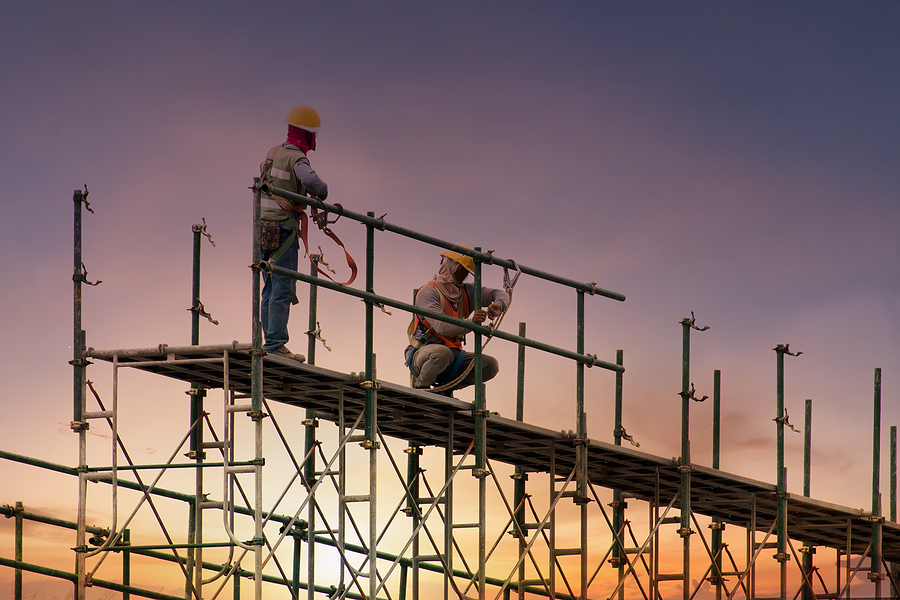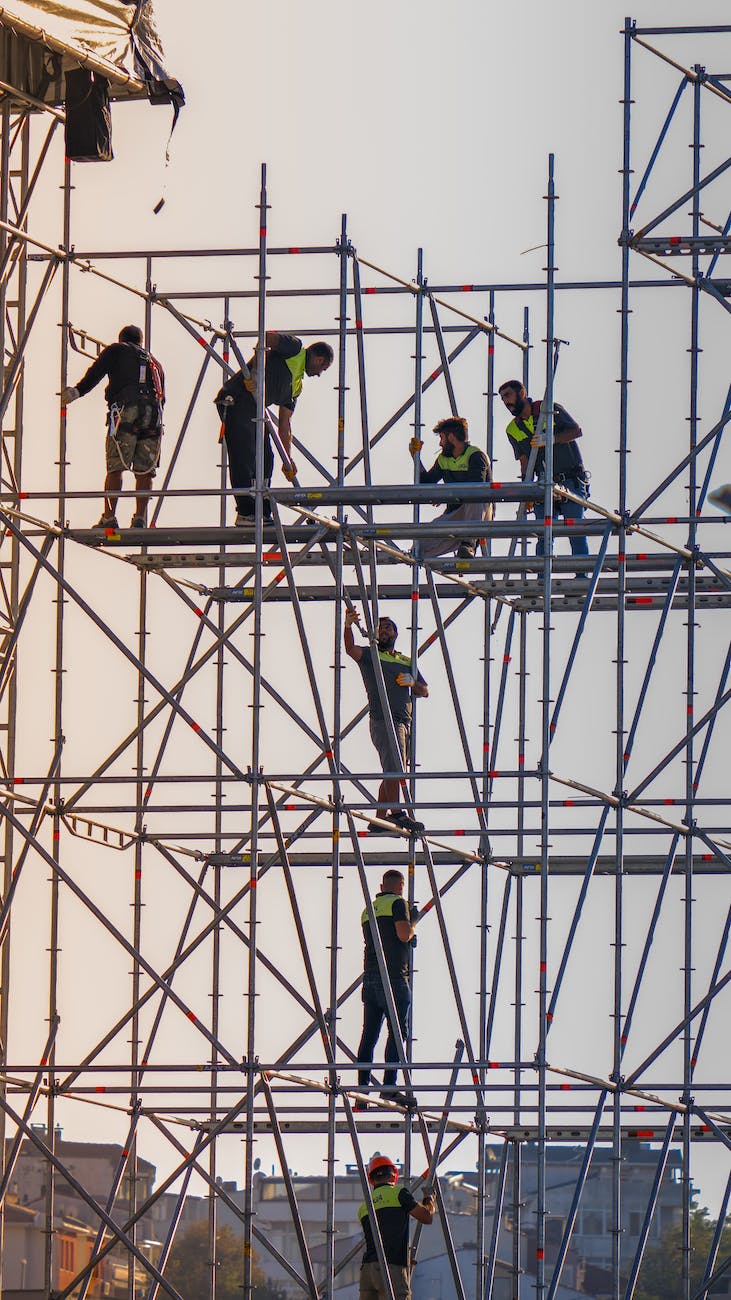Discovering the Numerous Sorts Of Scaffolding Used in Building And Construction Jobs
The construction market relies heavily on different types of scaffolding to satisfy particular project needs, each offering unique benefits and applications. Conventional frame scaffolding offers a tough structure for basic jobs, while put on hold scaffolding is important for work on high-rise structures.

Typical Structure Scaffolding
Typical framework scaffolding is just one of one of the most widely used techniques in the building sector because of its toughness and convenience. This system contains upright and straight frameworks that are constructed to create a stable system for materials and workers. The major elements consist of vertical posts, horizontal journals, and angled braces, which together offer a solid structure that can support considerable tons.
One of the crucial benefits of standard structure scaffolding is its flexibility to various building tasks, varying from residential buildings to big industrial structures. The modular design permits easy setting up and disassembly, making it efficient for both lasting and temporary jobs. Furthermore, the system can be tailored in elevation and width, accommodating various building layouts and site conditions.
Safety and security is vital in scaffolding applications, and typical structure systems are equipped with guardrails and toe boards to avoid falls and make sure employee protection. Regular examinations and adherence to safety regulations are crucial in maintaining the integrity of the scaffold (Scaffolding). Overall, conventional frame scaffolding continues to be a fundamental selection in the building and construction market, providing a reputable system for labor and enhancing overall task efficiency

Suspended Scaffolding
Put on hold scaffolding uses an unique service for construction projects that need accessibility to raised surface areas, specifically in situations where conventional structure scaffolding might be unwise. This kind of scaffolding is normally suspended from the roof or top levels of a framework, utilizing a system of systems, ropes, and pulleys to develop a functioning room that can be readjusted to numerous heights.
One of the primary advantages of suspended scaffolding is its versatility. It can be conveniently rearranged or decreased to suit changes in building and construction needs, making it suitable for jobs such as home window setup, façade work, and maintenance on skyscrapers. Furthermore, the marginal impact of put on hold scaffolding permits for far better use ground area in metropolitan settings, where area is usually restricted.
Safety and security is a vital factor to consider in the use of put on hold scaffolding. In general, suspended scaffolding offers a reliable and efficient service for accessing hard-to-reach locations in different construction circumstances, enhancing both efficiency and security on site.
System Scaffolding
System scaffolding, often considered a contemporary remedy in the scaffolding market, includes pre-engineered components that can be quickly put together and adapted for numerous construction tasks. Scaffolding. This sort of scaffolding is identified by its modular layout, which permits flexibility and efficiency on task websites, suiting architectural requirements and different elevations
Normally made from high-strength steel or light weight aluminum, system scaffolding supplies improved sturdiness and security. The elements consist of upright posts, straight journals, and angled braces, which adjoin firmly, making sure a robust framework. The layout commonly incorporates standardized installations, streamlining setting up and disassembly processes, thus lowering labor time and prices.

Rolling Scaffolding
Moving scaffolding is a functional choice to standard fixed scaffolding, made for wheelchair and simplicity of usage on building sites. This kind of scaffolding includes a platform supported by frames with wheels, permitting workers to quickly move it as required. The movement attribute significantly improves productivity, as it decreases downtime related to taking apart and assembling taken care of scaffolding.
Generally constructed from light-weight products such as aluminum or steel, rolling scaffolding supplies a durable yet mobile service for tasks requiring frequent repositioning - Scaffolding. It is specifically beneficial in jobs such as paint, drywall installation, and electrical job, where access to different elevations scaffold nail and areas is required
Safety and security is paramount in rolling scaffolding style, with Homepage attributes such as locking wheels to stop unintended movement when in operation, and guardrails to secure workers from drops. Furthermore, many versions are adjustable in height, suiting numerous task needs.
Cantilever Scaffolding

The layout of cantilever scaffolding commonly includes making use of braces or arms secured to a building or framework, making it possible for the platform to expand outside securely. Safety is paramount; thus, these scaffolds have to be crafted to withstand numerous tons and environmental problems. Regular assessment and maintenance are vital to ensure structural integrity and employee safety.
Cantilever scaffolding is favored for its adaptability and effective use space, making it a prominent selection in city atmospheres where room constraints prevail. In addition, it promotes simpler accessibility to high altitudes, ultimately contributing to the overall effectiveness of building and construction projects. Just like all scaffolding types, appropriate training and adherence to safety requirements are important for employees making use of cantilever scaffolding.
Final Thought
Typical frame scaffolding supplies security, while suspended scaffolding offers flexibility for elevated tasks. System scaffolding facilitates fast assembly, and rolling scaffolding boosts mobility for differing work environments.
Typical structure scaffolding supplies a sturdy foundation for basic tasks, while suspended scaffolding is important for job on high-rise frameworks.Moving scaffolding is a functional alternative to typical fixed scaffolding, designed for wheelchair and simplicity of use on building and construction sites. As with all scaffolding kinds, proper training and adherence to safety and security requirements are crucial for employees utilizing cantilever scaffolding.
Typical frame scaffolding gives stability, while put on hold scaffolding supplies convenience for raised jobs. System scaffolding promotes quick setting up, and rolling scaffolding boosts wheelchair for differing job environments.